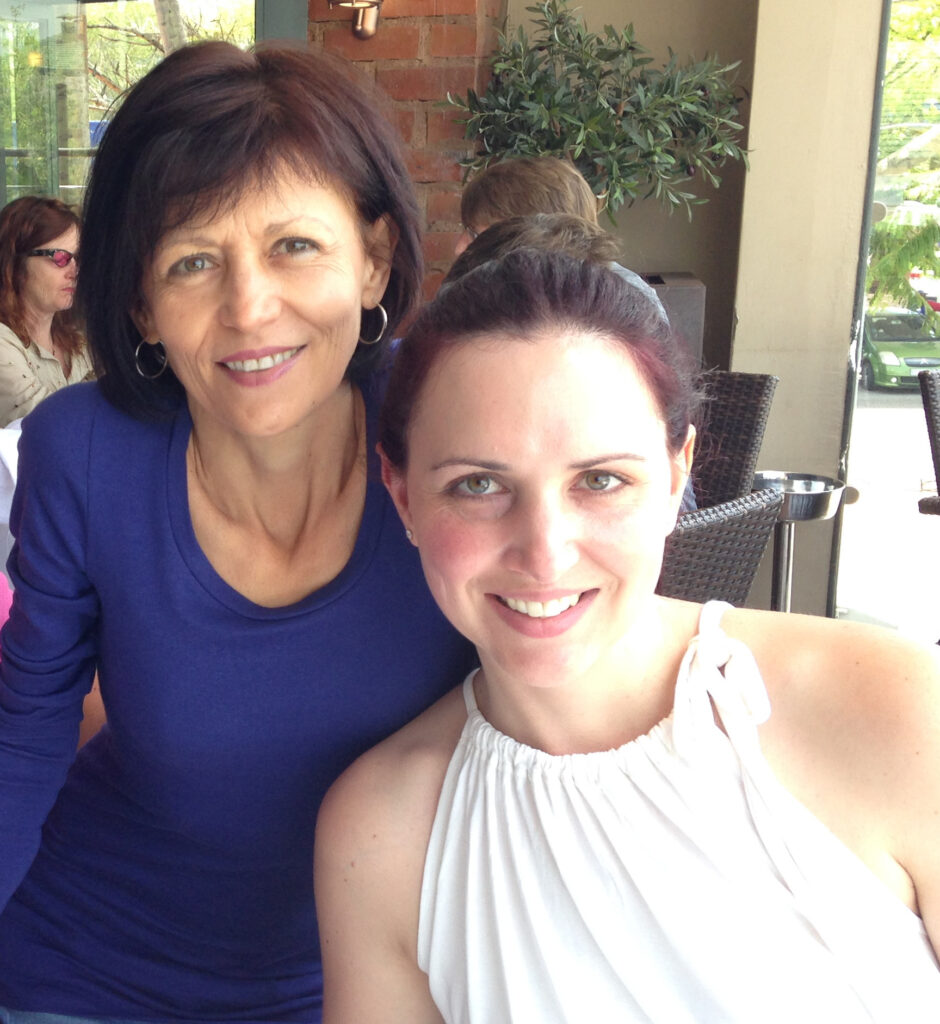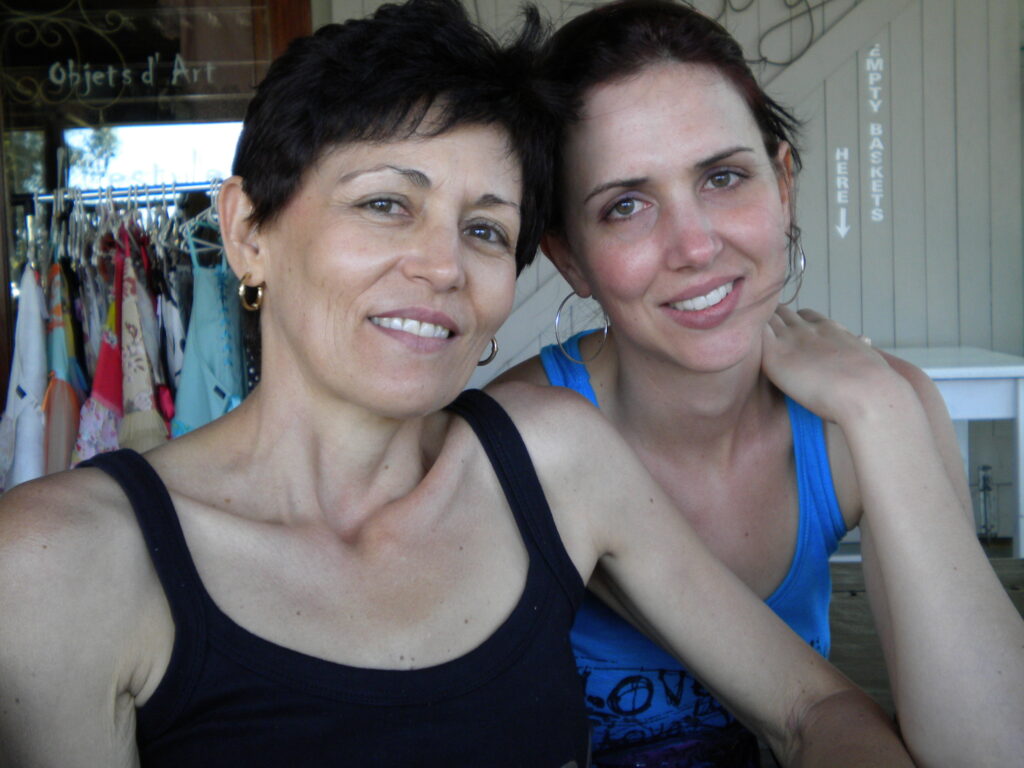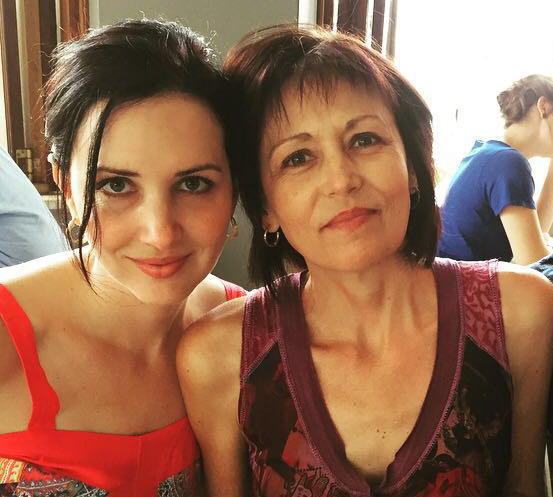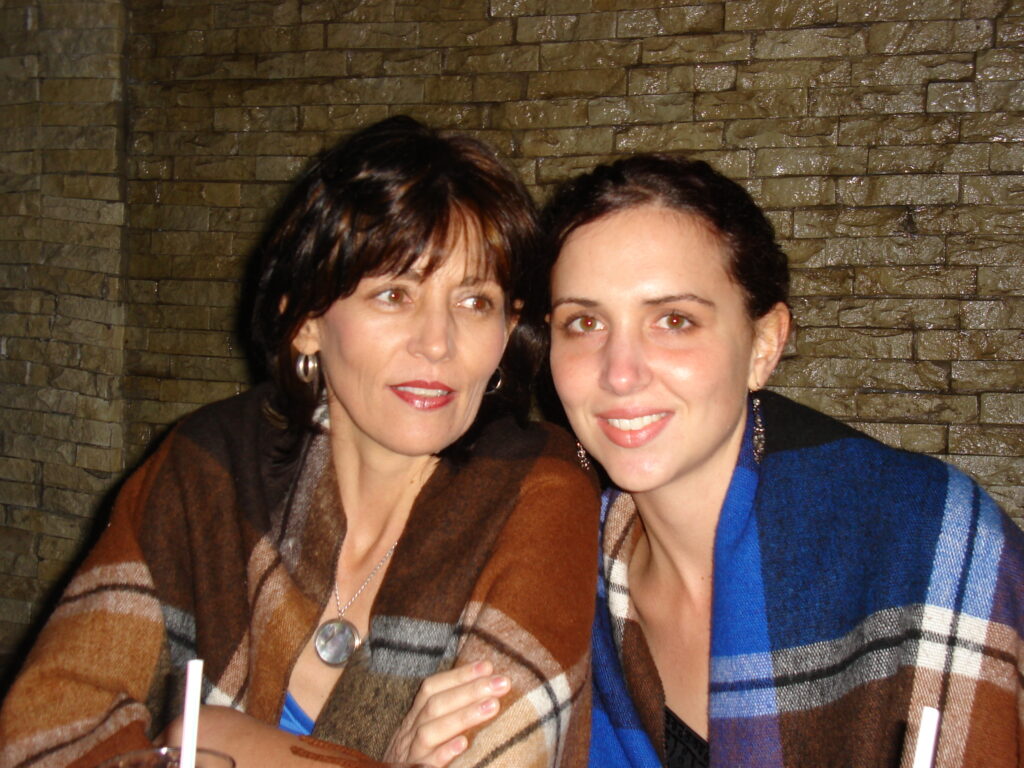





I remember the day the surgeon diagnosed my mother with terminal cancer like it was yesterday. The reality of our mortality was neatly tucked away in my subconscious until that moment, standing in the hospital hallway with her surgeon while she was still in the theatre recovery room, waking up after surgery. The news hit me like a tsunami. I was underwater and couldn’t come up to the surface to take a breath.
Right in the middle of our life, on an ordinary day, the unthinkable happened. Everything went from ordinary to chaotic, and there I stood, in the mess of it all, knowing there would forever be a before and after. That day. – Sharyn Marsh, Leave Her Wild
My mom was fifty years old and finishing her PhD in psychology. I had just moved to another province to intern as a newly qualified medical doctor, at a sought-after hospital. She and I were ready to ride the wave of success, not at all prepared to be knocked over by a freak wave called “terminal cancer”. In the days that followed, a senior colleague told me that he had lost his brother to brain cancer the year before, and he regrets not spending more time with him before he died. “Go home”, he said, “Work will always be there, but you won’t always have your mom”. And so I moved back home, transferred my internship to another hospital and took over my mom’s medical care. I accompanied her to every doctor’s appointment to advocate for her because she was too sick to do so herself and sat with her through endless chemotherapy sessions. For the first two years after her diagnosis, I slept next to her, over weekends when my dad was home, on a mattress on the floor by their bed, to wake up with her when she was nauseous or to administer pain medication four hourly to prevent breakthrough pain. I still only sleep on my left side, the side to face my mom in bed. It is a habit I developed to sleep with my hand on her abdomen so that I could feel when she woke up during the night.

After two years, my mom’s disease was deemed “stable”, and I moved to another province to specialise in cardiothoracic surgery. However, I would still attend every doctor’s appointment and chemotherapy session, scheduling them on my post-call days. I would sometimes leave theatre late at night and drive four hundred kilometres to be with her the next day for her treatment session. And then she died, unceremoniously, in the early hours of one morning while I was on call, eleven months before I had to write my final exam.
A single person is missing for you, and the whole world seems empty – Joan Didion, A Year of Magical Thinking
There is a general assumption by people who haven’t experienced such a profound loss that once the funeral is over, the road to healing starts. However, after the church empties, the “sorry for your loss” has been said, the flower arrangements sent to sympathise begin to wilt, and people carry on with their lives. It was then that I started to experience an indescribable absence. I didn’t cry much. Instead, I developed chest pain because I forgot to breathe, still feeling as if I was held down underwater. The passing of time that my mom was not part of was intolerable. I wanted time to stop, but time waits for no one, not even for my mom.
Every new event – everything I did for the rest of my life – would only separate us more and more: days she was no longer a part of, an ever-growing distance between us. Every single day for the rest of my life, she would only be further away – Donna Tartt, The Goldfinch
In the days, even months after her death, I would scroll through the contacts on my phone for someone to call during my drive to work while realising that no one was available for a chat at this hour of the day. I didn’t know how to start my day without our morning ritual of me phoning her as soon as I got into the car, to discuss our plans for the day, while driving to the hospital. After my mom’s death, I found myself being scared of everything and nothing. I struggled to make decisions because my safety net, always there to catch me when I got it wrong, disappeared overnight. Yet, as a previously anxious flyer, I wasn’t scared to fly anymore. I knew now that life would go on if the plane fell from the sky. Joan Didion aptly described this sensation in her book A Year of Magical Thinking as ”the relentless succession of moments during which we will confront the experience of meaninglessness itself”.

The month before my mom died, I fought for permission to sit for my final exam. Due to politics in the department, I, the unprioritised female, was expected to postpone my exam until the following year. I stood my ground to the point where I was told, “Then do what you want, ” so I enrolled for the exam. Back at work after my mother’s funeral, I was asked, “Are you going to defer the exam, or are you going to stop crying and start studying?”. So, instead of grieving the loss of my mother, I forced myself to focus on my exam preparations. That year, I thought about little else and passed my exam on the first try. And then I started grieving.
People rush to get rid of grief because they see it as hanging onto loss. But grief is really hanging onto love, which is why you always feel it – Riri, the_aftertalk Instagram
Joan Didion writes that before hospitals, people were familiar with death. It was a world where mourning was still recognised, allowed, not hidden from view. Later, due to the increasing pressure of the ethical duty to enjoy oneself, mourning became shameful and almost forbidden. It was imperative that one must do nothing to diminish the enjoyment of others. And so grieving was treated as a morbid self-indulgence. I didn’t care. I started to grieve the intense loss of my mother shamelessly and unrestrained more than a year and a half after her death. The only problem was that I was grieving alone. Those who knew my mother had already moved on, and my brother and dad were at a different stage of their grieving process. It was only for me that it felt like she died yesterday.
Grief comes in waves, paroxysms, sudden apprehensions that weaken the knees and blind the eyes and obliterate the dailiness of life – Joan Didion, A Year of Magical Thinking
Some women describe their mothers as their best friends. My mom wasn’t my best friend. She was so much more. She had an unconditional love for me that could only come from maternal instinct – I was from her flesh and blood. It mattered to my mom that I woke up in the mornings. She was a constant in my life who, no matter how badly I failed, would love me all the same. She would, in her soft way, tell me what she thought as she tried to prepare me, her sensitive child, for this sometimes harsh and unforgiving world. My mother gave me, a young single woman with few friends and no impressive background, moving across the country to chase a career a sense of belonging. When she died, it was as if someone had pulled the carpet from under my feet, and I had no solid ground to stand on. I felt abandoned and alone. I realised that I lost so much more the moment she died. I lost my identity. My identity as a daughter and as a caregiver died with her. I also lost a massive part of my history and memories. I still recall slivers of memories about events and faces of people I don’t know the names of, and I don’t have my mom to fill in the blanks.
“I didn’t expect”, she paused, “for it to be part of everything every minute”. “I didn’t know that you could lose someone and that meant you lost so much else” – Ann Napolitano, Hello Beautiful
I met my now husband three months after my mom died, and I promised myself that I would never love someone, or depend on someone so much that I felt so lost when they were gone. Still, I started to love this man, not because of his looks, as he would like to believe, but because he made me feel safe in a world where I was floating around, untethered, without my mom. My wedding day was exceptionally challenging. Meeting with the wedding photographer before the wedding, she suggested I take a picture holding a framed photo of my mom. I never did because she was so much more than a photo in a gilded frame. The night before my wedding, I celebrated with a bottle of champagne. Arriving at hair and makeup the morning of the wedding with a slight hangover, I realised, while someone was putting eyedrops in my bloodshot eyes, that the champagne I had the night before was not to celebrate the end of singledom but rather to numb my desolation of getting married without my mom. Finally, living in my own house with ample closet space, I unpacked my mother’s things in the guest room closet as if she would arrive to stay in just a moment. None of them were expensive, and I couldn’t wear any of her clothes because they didn’t fit, but I still like opening the closet, sometimes remembering what she wore and that we were together when she bought it.
It is a privilege to grieve. It means you loved someone, and someone loved you – A Gentleman in Moscow, TV series
I started to research grief and read every book I could find on the topic. The one truth that struck me repeatedly was that if we love, we grieve because grief is the love you want to give but cannot. It is love with no place to go. Grief and love are inseparable, and that grief is a terrible reminder of the depths of our love. I started to find solace in my grief, and I began to dread the day that I stopped grieving my loss. Would it mean that I was beginning to forget her? Even though my grief changed over time, it never disappeared. I still carry my mom with me every day.
What we have once enjoyed, we can never lose. All that we love deeply becomes part of us – Hellen Keller
Learning about the relationship between love and grief, I realised that I never allowed myself to completely love my husband. He is eleven years older than me, and I feared loving him because I was so afraid of losing him. I knew I had to open myself to love and the fear of grief to share an emotional connection with him, so I bravely started to fall deeply in love with my husband. He became my person. The new carpet under my feet, my solid ground. In him, I found a renewed sense of belonging.

I am an acclaimed emotionally stable person. Being a female in a male-dominated career, I have learnt not to show my emotions. Regardless, I now find myself crying without restraint at joyous family occasions. When I cried at my brother’s wedding and my niece’s christening, it was partly tears of joy, but I also cried because I felt an overwhelming sadness. I cried because there was a void where my mom should have been. She should have been here to witness what she was no longer part of. Still, the knowledge that grief is the unexpressed love we cannot give the person we lost gives me comfort. Accepting my grief as the love I have for my mom made me more vulnerable and open to appreciating the other love around me. Love really is all around, just maybe not in the form or shape we are used to. However, sometimes, I can’t help but wonder who will continue to love me and grieve me when I am gone, especially because I don’t have children. Reading my mom’s journal, I came across an entry that explains it all: “Wherein lies the meaning of life? In that which comes after this life, but while we are on earth, the meaning of life lies in meaningful relationships, spreading love, and living with wisdom and patience. To live in the moment, to grow, to change, and to live truthfully”.
It is better to light a candle than to curse the darkness – Ane Bannister
